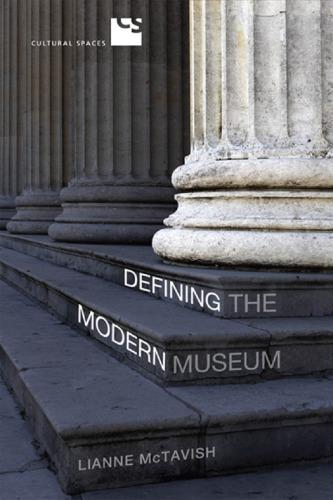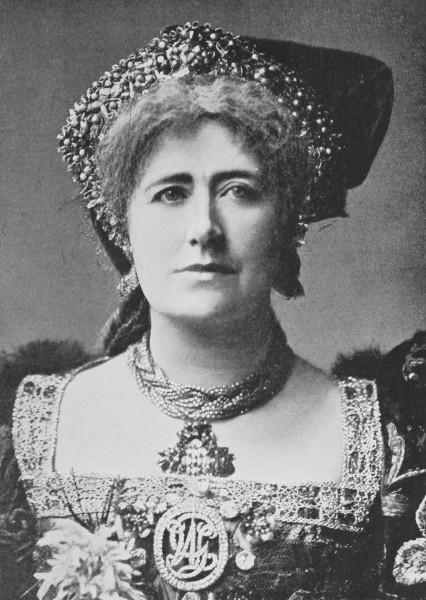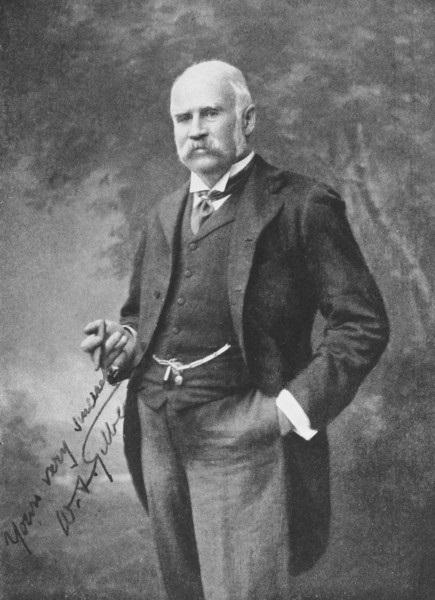Other documents randomly have different content
Every one will wish his bold venture success; and if he teaches a few of our “well-known” actors and actresses to speak so that we can follow every word of what they say, which at present we often cannot do, he will confer a vast boon on English playgoers, and doubtless add largely to the receipts of the theatres. It is a brave effort on his part, and he deserves every encouragement.
As this chapter began with a first-night performance, it shall end with first-night thoughts.
Are we not one and all hypercritical on such occasions?
PhotobyWindow&Grove,BakerStreet,W.
MISS ELLEN TERRY AS QUEEN KATHERINE.
We little realise the awful strain behind the scenes in the working of that vast machinery, the play. Not only is the author anxious, but the actors and actresses are worn out with rehearsals and nervousness: property men, wig-makers, scene-painters, and flymen are all in a state of extreme tension. The front of the house little realises what a truly awful ordeal a first night is for all concerned, and while it is kind to encourage by clapping, it is cruel to condemn by hissing or booing.
All behind the footlights do their best, or try so far as nervousness will let them, and surely we in the audience should not expect a perfect or a smooth representation, and should give encouragement whenever possible.
After all, however much the actors may suffer from nervousness and anxiety on a first night, their position is not really so trying as that of the author. If the actor is not a success, it may be “the part does not suit him,” or “it is a bad play,” there may be the excuse of “want of adequate support,” for he is only one of a number; but the poor author has to bear the brunt of everything. If his play fail the whole thing is a fiasco. He is blamed by every one. It costs more to put on another play than to change a single actor. The author stands alone to receive abuse or praise; he knows that, not only may failure prove ruin to him, but it may mean loss to actors, actresses, managers, and even the call boy. Therefore the more conscientious he is, the more torture he suffers in his anxiety to learn the public estimation of his work. The criticism may not be judicious, but if favourable it brings grist to the mill of all concerned.
CHAPTER X
OPERACOMIC
How W. S. Gilbert loves a Joke—A Brilliant Companion—Operas Reproduced without an Altered Line—Many Professions—A Lovely Home Sir Arthur Sullivan’s Gift A Rehearsal of Pinafore Breaking up Crowds Punctuality Soldier or no Soldier Iolanthe —Gilbert as an Actor—Gilbert as Audience—The Japanese Anthem —Amusement.
FEW authors are so interesting as their work—they generally reserve their wit or trenchant sarcasm for their books. W. S. Gilbert is an exception to this rule, however; he is as amusing himself as his Bab Ballads, and as sarcastic as H.M.S. Pinafore. A sparkling librettist, he is likewise a brilliant talker. How he loves a joke, even against himself. How well he tells a funny story, even if he invent it on the spot as “perfectly true.”
His mind is so quick, he grasps the stage-setting of a dinner-party at once, and forthwith adapts his drama of the hour to exactly suit his audience.
Like all amusing people, he has his quiet moments, of course; but when Mr. Gilbert is in good form he is inimitable. He talks like his plays, turns everything upside-down with wondrous rapidity, and propounds nonsensical theories in delightful language. He is assuredly the greatest wit of his day, and to him we owe the origin of musical-comedy in its best form.
With a congenial companion Mr. Gilbert is in his element. He is a fine-looking man with white hair and ponderous moustache, and owing to his youthful complexion appears younger than his years. He loves to have young people about him, and is never happier than when surrounded by friends.
In 1901, after an interval of nearly twenty years, his clever comic opera Iolanthewas revived at the Savoy with great success. Not one line, not one word of its original text had been altered, yet it took London by storm, just as did Pinaforewhen produced for the second time. How few authors’ work will stand so severe a test.
The genesis of Iolanthe is referable, like many of Mr. Gilbert’s libretti, to one of the Bab Ballads. The “primordial atomic globule” from which it traces its descent is a poem called TheFairyCurate, in which a clergyman, the son of a fairy, gets into difficulties with his bishop, who catches him in the act of embracing an airily dressed young lady, whom the bishop supposes to be a member of the corps de ballet. The bishop, reasonably enough, declines to accept the clergyman’s explanation that the young lady is his mother, and difficulties ensue. In the opera, Strephon, who is the son of the fairy Iolanthe, is detected by his fiancée Phyllis in the act of embracing his mother; Phyllis takes the bishop’s view of the situation, and complications arise.
Mr. Gilbert has penned such well-known blank verse dramas as The Palace of Truth, Pygmalion and Galatea, The Wicked Worlds, Broken Hearts, besides many serious and humorous plays and comedies—namely, Dan’lDruce, Engaged, Sweethearts, Comedyand Tragedy, and some dozen light operas.
It is a well-known fact that almost every comedian wishes to be a tragedian, and viceversâ, and Mr. Gilbert is said to have had a great and mighty sorrow all his life. He always wanted to write serious dramas—long, five-act plays full of situations and thought. But no; fate ordained otherwise, when, having for a change started his little barque as a librettist, he had to persevere in penning what he calls “nonsense.” The public were right; they knew there was no other W. S. Gilbert; they wanted to be amused, so they continually clamoured for more; and if any one did not realise his genius at the first production, he can hardly fail to do so now, when the author’s plays are again presented after a lapse of years, without an altered line, and still make long runs. Some say the art of comedy-writing is
dying out, and certainly no second Gilbert seems to be rising among the younger men of the present day, no humourist who can call tears or laughter at will, and send his audience away happy every night. The world owes a debt of gratitude to this gifted scribe, for he has never put an unclean line upon the stage, and yet provokes peals of laughter while shyly giving his little digs at existing evils. His style has justly created a name of its own.
W. S. Gilbert has always had a deep-rooted objection to newspaper interviews, just as he refuses ever to see one of his own plays performed. He attends the last rehearsal, gives the minutest directions up to the final moment, and then usually spends the evening in the green-room or in the wings of the theatre. Very few authors accept fame or success more philosophically than he does. When Princess Ida was produced he was sitting in the green-room, where there was an excitable Frenchman, who had supplied the armour used in the piece. The play was going capitally, and the Frenchman exclaimed, in wild excitement, “Mais savez-vous que nous avons là un succès solide?” To which Mr. Gilbert quietly replied, “Yes, your armour seems to be shining brightly.”
“Ah!” exclaimed the Frenchman, with a gesture of amazement, “mais vous êtes si calme!”
And this would probably describe the outward appearance of the author on a first night; nevertheless nothing will induce him to go in front even with reproductions.
Mr. Gilbert, who was born in 1836, proudly remarks that he has cheated the doctors and signed a new lease of life on the twentyone years’ principle. During those sixty-eight years he has turned his hand to many trades. After a career at the London University, where he took his B.A. degree, he read for the Royal Artillery, but the Crimean war was coming to an end, and consequently, more officers not being required, he became a clerk in the Privy Council Office, and was subsequently called to the Bar at the Inner Temple. He was also an enthusiastic militiaman, and at one time an occasional contributor to Punch, becoming thus an artist as well as a writer. His
pictures are well known, for the two or three hundred illustrations in the Bab Ballads are all from his clever pencil. Neatly framed they now adorn the billiard-room of his charming country home, and, strange to relate, the originals are not much larger than the reproductions, the work being extremely fine. I have seen him make an excellent sketch in a few minutes at his home on Harrow Weald; but photography has latterly cast its fascinations about him, and he often disappears into some dark chamber for hours at a time, alone with his thoughts and his photographic pigments, for he develops and prints everything himself. The results are charming, more especially his scenic studies.
What a lovely home his is, standing in a hundred and ten acres right on the top of Harrow Weald, with a glorious view over London, Middlesex, Berks, and Bucks. He farms the land himself, and talks of crops and live stock with a glib tongue, although the real enthusiast is his wife, who loves her prize chickens and her roses. Grim’s Dyke has an ideal garden, with white pigeons drinking out of shallow Italian bowls upon the lawn, with its wonderful Egyptian tent, its rose-walks and its monkey-house, its lake and its fish. The newlymade lake is so well arranged that it looks quite old with its bulrushes, water-lilies of pink, white, and yellow hue, and its blue forget-me-nots. The Californian trout have proved a great success, and are a source of much sport. Everything is well planned and beautifully kept; no better lawns or neater walks, no more prolific glass houses or vegetable gardens could be found than those at Harrow Weald.
The Gilberts give delightful week-end parties, and the brightest star is generally the host himself.
At one of these recent gatherings, for which Grim’s Dyke is famous, some beautiful silver cups and a claret jug were upon the table. They were left by will to Mr. Gilbert by his colleague of so many years, Sir Arthur Sullivan, and are a great pleasure to both the host and hostess of that well-organised country house. I have met many interesting and clever people at Harrow Weald, for the
brilliancy of the host and the charm of his wife naturally attract much that is best in this great city. It is a good house for entertaining, the music-room—formerly the studio of F. Goodall, R.A. —being a spacious oak-panelled chamber with a minstrels’ gallery, and cathedral windows. Excellent singing is often heard within those walls. Mr. Gilbert declares he is not musical himself; but such is hardly the case, for he on one or two occasions suggested to Sir Arthur Sullivan the style best suited to his words. His ear for time and rhythm is impeccable, but he fully admits he has an imperfect sense of tune.
The Squire of Harrow Weald is seen at his best at rehearsal.
H.M.S. Pinafore was first performed, I believe, in 1878, and about ten years afterwards it was revived in London. Ten years later, that is to say 1899, it was again revived, and one Monday morning when I was leaving Grim’s Dyke, Mr. Gilbert, who was coming up to town to attend a rehearsal, asked me if I would care to see it.
“Nothing I should like better,” I replied, “for I have always understood that you and Mr. Pinero are the two most perfect stage managers in England.”
We drove to the stage door of the Savoy, whence down strange and dark stone stairs we made our way to the front of the auditorium itself. We crossed behind the footlights, passing through a small, unpretending iron door into the house, Mr. Gilbert leading the way, to a side box, which at the moment was shrouded in darkness; he soon, however, pushed aside the white calico dustsheets that hung before it, and after placing chairs for his wife and myself, and hoping we should be comfortable, departed. What a spectre that theatre was! Hanging from gallery to pit were dustsheets, the stalls all covered up with brown holland wrappers, and gloom and darkness on all things. Verily a peep behind the scenes which, more properly speaking, was before the scenes in this case, is like looking at a private house preparing for a spring cleaning.
MR. W. S. GILBERT.
Built out over what is ordinarily the orchestra, was a wooden platform large enough to contain a piano brilliantly played by a woman, beside whom sat the conductor of the orchestra, who was naturally the teacher of the chorus, and next to him the ordinary stage manager, with a chair for Mr. Gilbert placed close by. The librettist, however, never sat on that chair. From 11.30 to 1.30— exactly two hours, he walked up and down in front of the stage,
PhotobyLangfier,23a,OldBondStreet,London,W.
directing here, arranging there; one moment he was showing a man how to stand as a sailor, then how to clap his thighs in nautical style, and the next explaining to a woman how to curtsey, or telling a lover how to woo. Never have I seen anything more remarkable. In no sense a musician, Mr. Gilbert could hum any of the airs and show the company the minutest gesticulations at the same time. Be it understood they were already wordand musicperfect, and this was the second “stage rehearsal.” He never bullied or worried any one, he quietly went up to a person, and in the most insinuating manner said:
“If I were you, I think I should do it like this.”
And “this” was always so much better than their own performance that each actor quickly grasped the idea and copied the master. He even danced when necessary, to show them how to get the right number of steps in so as to land them at a certain spot at a certain time, explaining carefully:
“There are eight bars, and you must employ so many steps.”
Mr. Gilbert knows every bar, every intonation, every gesture, the hang of every garment, and the tilt of every hat. He has his plans and his ideas, and never alters the situations or even the gestures he has once thought out.
He marched up and down the stage advising an alteration here, an intonation there, all in the kindest way possible, but with so much strength of conviction that all his suggestions were adopted without a moment’s hesitation. He never loses his temper, always sees the weak points, and is an absolute master of stage craft. His tact on such occasions is wonderful.
The love and confidence of that company in Mr. Gilbert was really delightful, and I have no hesitation in saying he was the best actor in the whole company whichever part he might happen to undertake. If anything he did not like occurred in the grouping of the chorus he clapped his hands and everybody stopped, when he would call out:
“Gentlemen in threes, ladies in twos,” according to a style of his own.
Twenty-five years previously he had been so horrified at chorus and crowd standing round the stage in a ring, that he invented the idea of breaking them up, and thereafter, according to arrangement, when “twos” or “threes” were called out the performers were to group themselves and talk in little clusters, and certainly the effect was more natural.
Mr. Gilbert had no notes of any kind. He brought them with him, but never opened the volume, and yet he knew exactly how everything ought to be done. This was his first rehearsal with the company, who up till then had been in the stage manager’s hands and worked according to printed instructions. The scene was a very different affair after the mastermind had set the pawns in their right squares, and made the bishops and knights move according to his will. In two hours they had gone through the first act of Pinafore, and he clapped his hands and called for luncheon.
“It is just half-past one,” he said; “I am hungry, and I daresay you are hungry, so we will halt for half an hour. I shall be back by five minutes past two—that is five minutes’ grace, when”—bowing kindly —“I shall hope to see you again, ladies and gentlemen.”
We three lunched at the Savoy next door, and a few minutes before two he rose from the table, ere he had finished his coffee, and said he must go.
“You are in a hurry,” I laughingly said.
“Yes,” he replied, “I have made it a rule never to be late. The company know I shall be there, so the company will be in their places.”
A friend once congratulated him on his punctuality.
“Don’t,” he said; “I have lost more time by being punctual than by anything else.”
One thing in particular struck me as wonderful during the rehearsal. Half a dozen soldiers are supposed to come upon the stage, and at a certain point half a dozen untidily dressed men with guns in their hands marched in. Mr. Gilbert looked at them for a moment, and then he went up to one gallant warrior and said:
“Is that the way you hold your gun?”
“Yes, sir.”
“Really! Well, I never saw a soldier with his thumbs down before— in fact, I don’t think you are a soldier at all.”
“No, sir, I am a volunteer.”
Mr. Gilbert turned to the stage manager hastily, and said:
“I told you I wanted soldiers.”
“But there is a sergeant,” he replied.
“Sergeant,” called Mr. Gilbert, “step forward.” Which the sergeant did.
“You know your business,” the author remarked, watching the man’s movements, “but these fellows know nothing. Either bring me real soldiers, or else take these five men and drill them until at least they know how to stand properly before they come near me again.”
Later in the proceedings a dozen sailors marched on: he went up to them, asked some questions about how they would man the yardarm, and on hearing their reply said:
“I see you know your business, you’ll do.”
As it turned out, they were all Naval Reserve men, so no wonder they knew their business. Still, Mr. Gilbert’s universal knowledge of all sorts and conditions of men struck me as wonderful on this and many other occasions. No more perfect stage manager exists, and no one gets more out of his actors and actresses.
At one time Patience was being played in the United States by dozens of companies, but that was before the days of copyright, and
poor Mr. Gilbert never received a penny from America excepting once when a kindly person sent him a cheque for £100. Had he received copyright fees from the United States his wealth would have been colossal.
When Iolanthewas revived in London in 1902 I again attended a “call.” An entirely new company began rehearsing exactly ten days before the first night—any one who knows anything of the stage will realise what this means, and that a master-mind was necessary to drill actors and chorus in so short a time—yet the production was a triumph. This was the first occasion on which Sir Arthur Sullivan did not conduct the dress rehearsal or the first night of one of their joint operas. He had died shortly before.
Mr. Gilbert was delighted with the cast, and declared it was quite as good, and in some respects perhaps better, than the original had been. A few of the people had played principals in the provinces before; but he would not allow any of their own “business” and remarked quietly:
“In London my plays are produced as I wish them; in the provinces you can do as you like.”
And certainly they obeyed him so implicitly that if he had asked them all to stand on their heads in rows, I believe they would have done it smilingly.
When Mr. Gilbert was about thirty-five years old, a matinée of Broken Heartswas arranged for a charity. The author arrived at the theatre about one o’clock, to find Kyrle Bellew, who was to play the chief part, had fallen through a trap and was badly hurt. There was no understudy and only an hour intervened before the advertised time of representation.
Good Heavens! what was to be done? The audience had paid their money, which the charity wanted badly, and without the hero the play was impossible.
He good-naturedly and kind-heartedly decided to play the part himself rather than let the entertainment fall through, wired for wig
and clothes, and an hour and a half later walked on to the stage as an actor. He knew every line of the play of course, not only the hero’s, but all the others’, and he had just coached every situation. The papers duly thanked him and considered him a great success. That was his only appearance upon the stage in public.
For twenty-five years he never saw one of his own plays, not caring to sit in front; but once, at a watering-place in the Fatherland where TheMikadowas being given, some friends persuaded him to see it in German.
“I know what rubbish these comic operas are, and I should feel ashamed to sit and hear them and know they were mine,” he modestly remarked.
Nevertheless he went, and was rather amused, feeling no responsibility on his shoulders, and afterwards saw The Mikado in England at a revival towards the end of the nineties. He once told me a rather amusing little story about TheMikado. A gentleman who had been many years in the English Legation at Yokohama, attended some of the rehearsals, and was most useful in giving hints as to positions and manners in Japan. Mr. Gilbert wanted some effective music for the entrance of the Mikado—nothing Mr. Arthur Sullivan suggested suited—so turning to the gentleman he said:
“Can’t you hum the national Japanese anthem?”
“Oh yes,” he said cheerily. And he did.
“Capital—it’ll just do.”
Mr. Sullivan—for he was not then Sir Arthur—made notes, wrote it up, and the thing proved a great success. Some time afterwards a furious letter came from a Japanese, saying an insult had been offered the Mikado of Japan, the air to which that illustrious prince entered the scene instead of being royal was a music hall tune! Whether this is so or not remains a mystery, anyway it is a delightful melody, and most successful to this day.
Mr. Gilbert has been a great traveller—for many years he wintered abroad in India, Japan, Burmah, Egypt, or Greece, and at one time he was the enthusiastic owner of a yacht; but this amusement he has given up because so few of his friends were good sailors, and so he has taken to motoring instead.
Croquet-playing and motoring are the chief amusements of this “retired humourist,” as a local cab-driver once described the Squire of Grim’s Dyke.
CHAPTER XI
THEFIRSTPANTOMIMEREHEARSAL
Origin of Pantomime—Drury Lane in Darkness—One Thousand Persons—Rehearsing the Chorus—The Ballet—Dressing-rooms— Children on the Stage Size of “The Lane” A Trap-door The Property-room Made on the Premises Wardrobe-woman Dan Leno at Rehearsal—Herbert Campbell—A Fortnight Later—A Chat with the Principal Girl—Miss Madge Lessing.
EXACTLY nine days before Christmas, 1902, the first rehearsal for the pantomime of Mother Goose took place at Drury Lane. It seemed almost incredible that afternoon that such a thing as a “first night,” with a crowded house packed full of critics, could witness a proper performance nine days later, one of which, being a Sunday, did not count.
The pantomime is one of England’s institutions. It originally came from Italy, but as known to-day is essentially a British production, and little understood anywhere else in the world. For the last three years, however, the Drury Lane pantomime has been moved bodily to New York with considerable success.
What would Christmas in London be without its Drury Lane? What would the holidays be without the clown and harlequin? Young and old enjoy the exquisite absurdity of the nursery rhyme dished up as a Christmas pantomime.
The interior of that vast theatre, Drury Lane, was shrouded in dust-sheets and darkness, the front doors were locked, excepting at the booking office, where tickets were being sold for two and three months ahead, and a long queue of people were waiting to engage seats for family parties when the pantomime should be ready.
At the stage door all was bustle; children of all ages and sizes were pushing in and out; carpenters, shifters, supers, ballet girls, chorus, all were there, too busy to speak to any one as they rushed in from their cup of tea at the A.B.C., or stronger drink procured at the “pub” opposite. It was a cold, dreary day outside; but it was colder and drearier within. Those long flights of stone steps, those endless stone passages, struck chill and cheerless as a cellar, for verily the back of a theatre resembles a cellar or prison more than anything I know.
Drury Lane contains a little world. It is reckoned that about one thousand people are paid “back and front” every Friday night. One thousand persons! That is the staff of the pantomime controlled by Mr. Arthur Collins. Fancy that vast organisation, those hundreds of people, endless scenery, and over two thousand dresses superintended by one man, and that a young one.
For many weeks scraps of Mother Goose had been rehearsed in drill-halls, schoolrooms, and elsewhere, but never till the day of which I write had the stage been ready for rehearsal. They had worked hard, all those people; for thirteen-and-a-half hours on some days they had already been “at it.” Think what thirteen-and-a-halfhours mean. True, no one is wanted continuously, still all must be on the spot. Often there is nowhere to sit down, therefore during those weary hours the performers have to stand—only between-whiles singing or dancing their parts as the case may be.
“I’m that dead tired,” exclaimed a girl, “I feel just fit to drop,” and she probably expressed the feelings of many of her companions.
The rehearsal of The Rose of the Riviera, was going on in the saloon, which a hundred years ago was the fashionable resort of all the fops of the town. Accordingly to the saloon I proceeded where Miss Madge Lessing, neatly dressed in black and looking tired, was singing her solos, and dancing her steps with the chorus.
“It is very hard work,” she said. “I have been through this song until I am almost voiceless; and yet I only hum it really, for if we
sang out at rehearsal, we should soon be dead.”
The saloon was the ordinary foyer, but on that occasion, instead of being crowded with idlers smoking and drinking during the entr’actes, it was filled with hard-worked ballet girls and small boys who were later to be transformed into dandies. They wore their own clothes. The women’s long skirts were held up with safety-pins, to keep them out of the way when dancing, their shirts and blouses were of every hue; on their heads they wore men’s hats that did not fit them, as they lacked the wigs they would wear later, and each carried her own umbrella, many of which, when opened, seemed the worse for wear. At the end of the bar was a cottage piano, where the composer played his song for two-and-a-half hours, while it was rehearsed again and again—a small man with a shocking cold conducting the chorus. He is, I am told, quite a celebrity as a stage “producer,” and was engaged in that capacity by Mr. George Edwards at the New Gaiety Theatre. How I admired that small man. His energy and enthusiasm were catching, and before he finished he had made those girls do just what he wanted. But oh! how hard he worked, in spite of frequent resort to his pocket-handkerchief and constant fits of sneezing.
“This way, ladies, please”—he repeated over and over, and then proceeded to show them how to step forward on “Would you like a —flower?” and to take off their hats at the last word of the sentence. Again and again they went through their task; but each time they seemed out of line, or out of time, not quick enough or too quick, and back they had to go and begin the whole verse once more. Even then he was not satisfied.
“Again, ladies, please,” he called, and again they all did the passage. This sort of thing had been going on since 11 o’clock, the hour of the “call,” and it was then 4 p.m.—but the rehearsal was likely to last well into the night and begin again next morning at 11 a.m. This was to continue all day, and pretty well all night for nine days, when, instead of a holiday, the pantomime was really to commence with its two daily performances, and its twelve hours per
diemattendance at the theatre for nearly four months. Yet there are people who think the stage is all fun and frolic! Little they know about the matter.
Actors are not paid for rehearsals, as we have seen before, and many weeks of weary attendance for the pantomime have to be given gratis, just as they are for legitimate drama. Those beautiful golden fairies, all glitter and gorgeousness, envied by spectators in front, only receive £1 a week on an average for twelve hours’ occupation daily, and that merely for a few weeks, after which time many of them earn nothing more till the next pantomime season. It is practically impossible to give an exact idea of salaries: they vary so much. “Ballet girls,” when proficient, earn more than any ordinary “chorus” or “super,” with the exception of “show girls.” Those in the rank of “principals,” or “small-part ladies,” of course earn more.
Ballet girls begin their profession at eight years of age, and even in their prime can only earn on an average £2 a week.
In the ballet-room an iron bar runs all round the sides of the wall, about four feet from the floor, as in a swimming bath. It is for practice. The girls hold on to the bar, and learn to kick and raise their legs by the hour; with its aid suppleness of movement, flexibility of hip and knee are acquired. Girls spend years of their life learning how to earn that forty shillings a week, and how to keep it when they have earned it; for the ballet girl has to be continually practising, or her limbs would quickly stiffen and her professional career come to an end.
No girl gets her real training at the Lane. All that is done in one of the dancing schools kept by Madame Katti Lanner, Madame Cavalazzi, John D’Auban, or John Tiller. When they are considered sufficiently proficient they get engagements, and are taught certain movements invented by their teachers to suit the particular production of the theatre itself.
The ballet is very grand in the estimation of the pantomime, for supers, male and female, earn considerably less salary than the
ballet for about seventy-two hours’ attendance at the theatre. Out of their weekly money they have to provide travelling expenses to and from the theatre, which sometimes come heavy, as many of them live a long distance off; they have to pay rent also, and feed as well as clothe themselves, settle for washing, doctor, amusements— everything, in fact. Why, a domestic servant is a millionaire when compared with a chorus or ballet girl, and she is never harassed with constant anxiety as to how she can pay her board, rent, and washing bills. Yet how little the domestic servant realises the comforts—aye luxury—of her position.
The dressing-rooms are small and cheerless. Round the sides run double tables, the top one being used for make-up boxes, the lower for garments. In the middle of the floor is a wooden stand with a double row of pegs upon it, utilised for hanging up dresses. Eight girls share a “dresser” (maid) between them. The atmosphere of the room may be imagined, with flaring gas jets, nine women, and barely room to turn round amid the dresses. The air becomes stifling at times, and there is literally no room to sit down even if the costumes would permit of such luxury, which generally they will not. In this tiny room performers have to wait for their “call,” when they rush downstairs, through icy cold passages, to the stage, whence they must return again in time to don the next costume required.
Prior to the production, as we have seen, there are a number of rehearsals, followed for many weeks by two performances a day, consequently the children who are employed cannot go on with their education, and to avoid missing their examinations a school-board mistress has been appointed, who teaches them their lessons during the intervals. These children must be bright scholars, for they are the recipients at the end of the season of several special prizes for diligence, punctuality, and good conduct.
An attempt was recently made to limit the age of children employed on the stage to fourteen, but the outcry raised was so great that it could not be done. For children under eleven a special licence is required.
Miss Ellen Terry said, on the subject of children on the stage: “I am an actress, but first I am a woman, and I love children,” and then proceeded to advocate the employment of juveniles upon the stage. She spoke from experience, for she acted as a child herself. “I can put my finger at once on the actors and actresses who were not on the stage as children,” she continued. “With all their hard work they can never acquire afterwards that perfect unconsciousness which they learn then so easily. There is no school like the stage for giving equal chances to boys and girls alike.”
There seems little doubt about it, the ordinary stage child is the offspring of the very poor, his playground the gutter, his surroundings untidy and unclean, his food and clothing scanty, and such being the case he is better off in every way in a well-organised theatre, where he learns obedience, cleanliness, and punctuality. The sprites and fairies love their plays, and the greatest punishment they can have—indeed, the only one inflicted at Drury Lane—is to be kept off the stage a whole day for naughtiness.
They appear to be much better off in the theatre than they would be at home, although morning school and two performances a day necessitate rather long hours for the small folk. They have a nice classroom, and are given buns and milk after school; but their dressing accommodation is limited. Many of the supers and children have to change as best they can under the stage, for there is not sufficient accommodation for every one in the rooms.
The once famous “Green-room” of Drury Lane has been done away with. It is now a property-room, where geese’s heads line the shelves, or golden seats and monster champagne bottles litter the floor.
There have been many changes at Drury Lane. It was rebuilt after the fire in 1809, and reopened in 1812, but vast alterations have been carried out since then. Woburn Place is now part of the stage. Steps formerly led from Russell Street to Vinegar Yard, but they have been swept away and the stage enlarged until it is the biggest in the world. Most ordinary theatres have an opening on the auditorium of
about twenty-five feet; Drury Lane measures fifty-two feet from fly to fly, and is even deeper in proportion. The entire stage is a series of lifts, which may be utilised to move the floor up or down. Four tiers, or “flats,” can be arranged, and the floor moved laterally so as to form a hill or mound. All this is best seen from the mezzanine stage, namely, that under the real one, where the intricacies of lifts and ropes and rooms for electricians become most bewildering. Here, too, are the trap-doors. For many years they went out of fashion, as did also the ugly masks, but a Fury made his entrance by a trap on Boxing Day, 1902, and this may revive the custom again. The actor steps on a small wooden table in the mezzanine stage, and at a given sign the spring moves and he is shot to the floor above. How I loved and pondered as a child over these wonderful entrances of fairies and devils. And after all there was nothing supernatural about them, only a wooden table and a spring. How much of the glamour vanishes when we look below the surface, which remark applies not only to the stage, but to so many things in life.
Every good story seems to have been born a chestnut. Some one always looks as if he had heard it before. At the risk of arousing that sarcastic smile I will relate the following anecdote, however.
A certain somewhat stout Mephistopheles had to disappear through a trap-door amid red fire, but the trap was small and he was big and stuck halfway. The position was embarrassing, when a voice from the gallery called out:
“Cheer up, guv’nor. Hell’s
full.”
Electricity plays a great part in the production of a pantomime, not only as regards the lighting of the scenes, but also as a motive power for the lifts which are used for the stage. Many new inventions born during the course of a year are utilised when the Christmas festival is put on.
The property-room presents a busy scene before a pantomime, and really it is wonderful what can be produced within its walls.
Welcome to our website – the perfect destination for book lovers and knowledge seekers. We believe that every book holds a new world, offering opportunities for learning, discovery, and personal growth. That’s why we are dedicated to bringing you a diverse collection of books, ranging from classic literature and specialized publications to self-development guides and children's books.
More than just a book-buying platform, we strive to be a bridge connecting you with timeless cultural and intellectual values. With an elegant, user-friendly interface and a smart search system, you can quickly find the books that best suit your interests. Additionally, our special promotions and home delivery services help you save time and fully enjoy the joy of reading.
Join us on a journey of knowledge exploration, passion nurturing, and personal growth every day!












